Featured Blog
“I can walk again”: hope for amputees in Gaza
As of April 2025, the UN reports that 4,500 people have lost limbs due to the ongoing conflict, including more than 800 children. Many have been left to suffer with limited or no access to medical care and support.

Specialists assist a man and a young boy as they relearn how to walk with their artificial legs. Photo: Caritas Jerusalem
View Filter
Filter by
Clear Filters
Filter by
Viewing 1-20 of 323
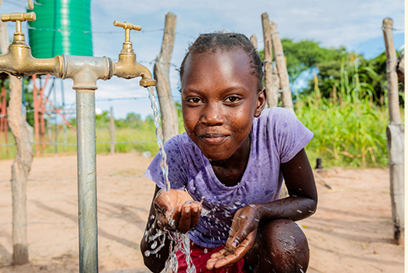
Thandolwayo collecting water in Zimbabwe. Photo credit: Richard Wainwright/Caritas Australia.
10 MAR 22
You can support Caritas Australia’s life-changing work in a range of ways. From becoming a Caritas Neighbour, purchasing a Global Gift, to leaving a Legacy of Love, your generosity will make a real and lasting difference to the lives of vulnerable communities, globally.
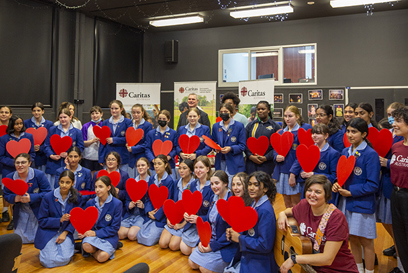
Project Compassion launch event in Melbourne. Photo: Connie Zehender/Caritas Australia
This week marks the launch of Project Compassion, Caritas Australia's annual fundraising campaign that spans across the six weeks of Lent every year.
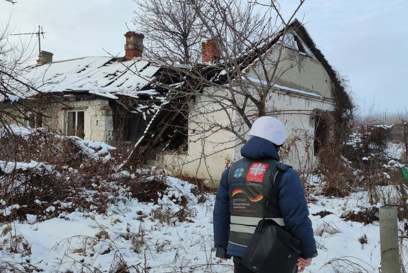
Caritas Zaporizhzhia delivering food kits in buffer zone in early 2022. Photo: Caritas Ukraine.
25 FEB 22
Caritas Australia’s partner Caritas Ukraine has called for support and assistance as it continues to support the country’s most vulnerable as the crisis escalates.
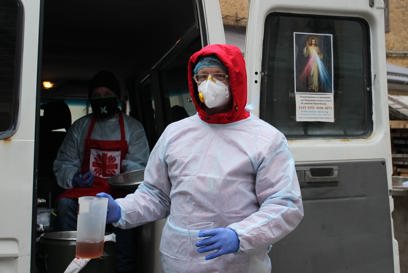
A volunteer working at the Kitchen for the Homeless in Kyiv in 2021. Photo: Caritas Spes, Ukraine.
Caritas Australia stands in solidarity with the people of eastern Ukraine. We pray for all the people in Ukraine, especially the vulnerable and marginalised communities who will be most severely impacted by the recent escalation of armed conflict.
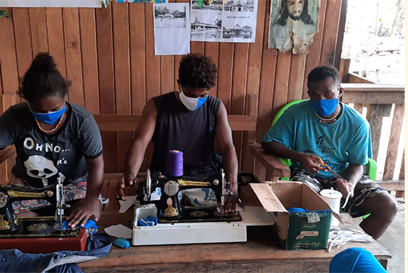
Community members make face masks to combat the spread of COVID-19. Photo: Caritas Australia Solomon Islands
The Solomon Islands is currently facing its first COVID-19 outbreak during this pandemic, with nearly 6,000 cases recorded and the hospital system on the brink of collapse.
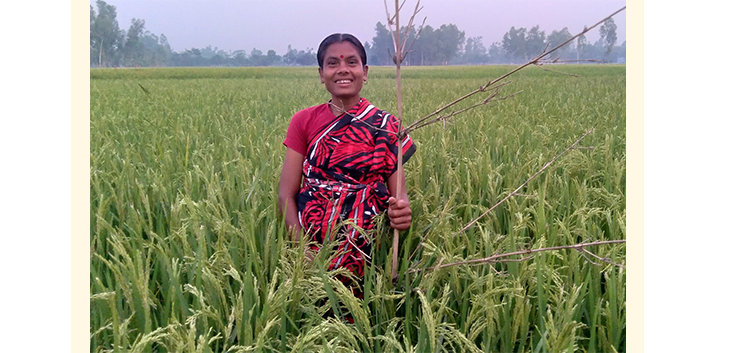
Chanmoni on her farm in Bangladesh. Photo credit: Caritas Bangladesh.
Despite Bangladesh’s economic growth over the past decade, inequality in the country continues to impact the most marginalised groups, particularly women, children and indigenous people.
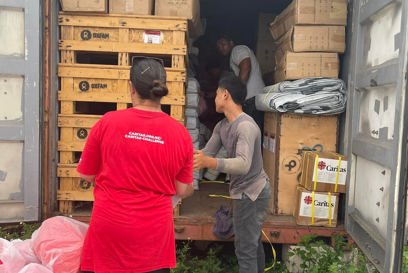
Caritas Tonga staff pre-positioning supplies/Credit: Caritas Tonga.
The Hunga Tonga-Hunga Ha’apai undersea volcano, which erupted on Saturday 15 January, has left the people of Tonga with no way to communicate with the rest of the world and in dire need for humanitarian support.
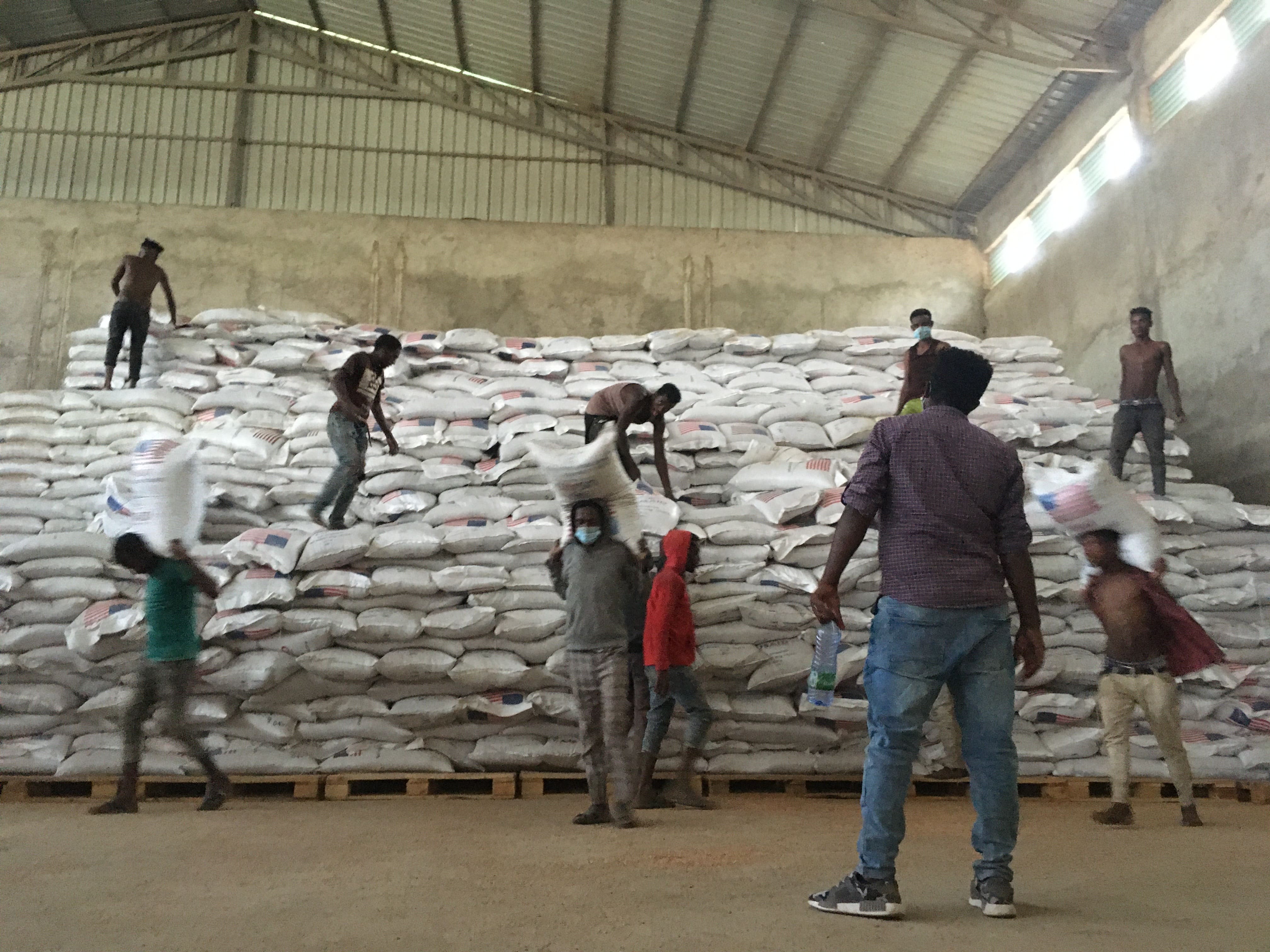
Food distribution in Ethiopia. Photo: CRS
As many as 9.4 million people in Ethiopia are in need of urgent food assistance as the conflict in the East African country continues to escalate.
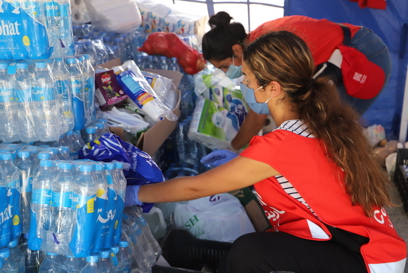
Volunteers distribute aid in Beirut. Photo by Caritas Lebanon.
Lebanon is currently facing its biggest humanitarian crisis yet. The financial situation in the Middle Eastern nation has been unfolding for more than two years and has progressively worsened.
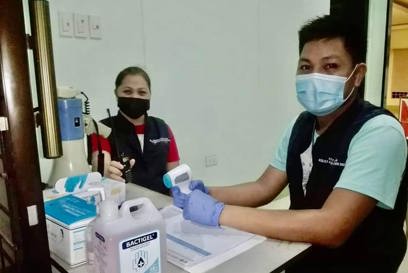
Staff at Palo's multi purpose office building supporting evacuees during Typhoon Rai. Photo: Caritas Palo
Typhoon Rai has brought torrential rain, wind gusts over 200 km/h, flash floods, landslides and extensive damage to homes and livelihoods in the Philippines.
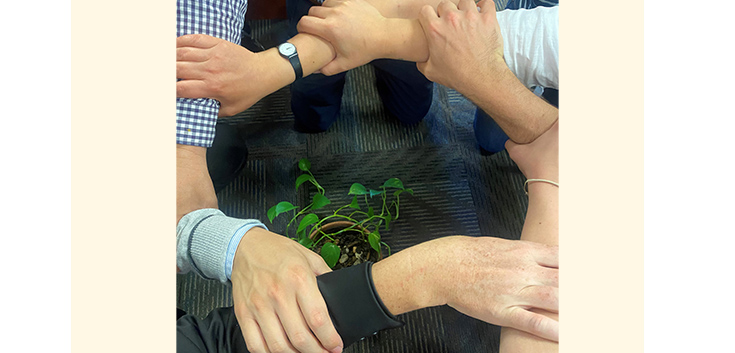
Recreation of #TogetherWe campaign logo by Caritas Australia staff. Photo by Connie Zehender/Caritas Australia.
14 DEC 21
On 13 December, Caritas Internationalis launched its new global campaign “Together We - Act today for a better tomorrow”, during a conference held in Rome at the Pontifical Urbaniana University.
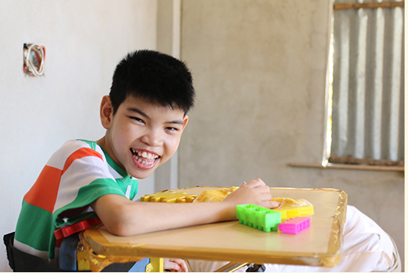
Luc* can now attend community-based classrooms so that he doesn't miss out on an education. Photo: SRD.
On International Day of People with Disability (3rd December), we celebrate the resilience of people who are striving to overcome these barriers to inclusion.
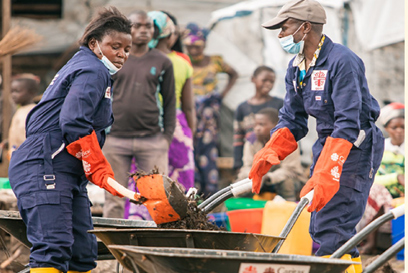
Members of the Hygiene Committee assist with cleaning up the camp site. Photo: Caritas Goma.
Thousands of displaced families in the Democratic Republic of Congo (DRC) remain in need of urgent humanitarian support following a volcanic eruption in May this year.
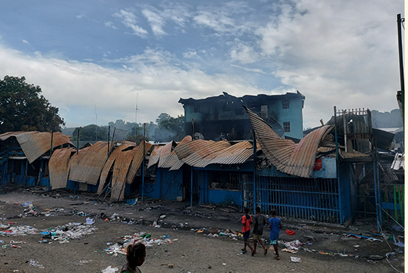
Building were burnt down during days of civil unrest in the capital, Honiara. Photo: Rose Clough/Caritas Australia.
Protests have broken out in Honiara, the capital of the Solomon Islands, prompting aid workers to raise concerns about the impacts of the unrest on access to food and livelihoods.
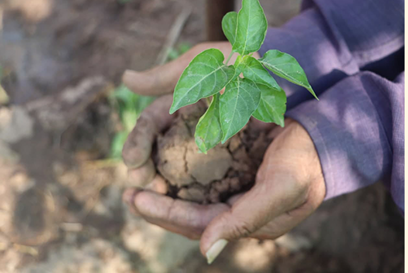
Lat holding sapling. Photo credit: Sam Rinang, ARD
04 NOV 21
Through your support, vulnerable communities in Cambodia and the rest of the world can learn about disaster risk management and be better prepared to deal with the ongoing effects of environmental changes.

Rural villages in India rebuilding from COVID-19. Photo credit: Caritas India.
A new report released by the United Nations Development Programme (UNDP) has revealed disadvantaged tribal and caste communities make up more than 80 per cent of people living in poverty.
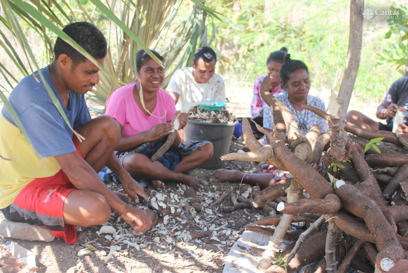
Yani with community members in her garden. Photo: YMTM.
COVID-19 has significantly affected Indonesia's economy over the past few months. The surge of the highly contagious Delta variant has resulted in a second wave of the virus for the South East Nation.
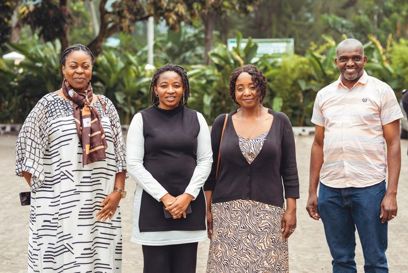
Lulu Mitshabu (second from right) visiting Caritas Australia partners in DRC In Jan 2023. Photo: Lulu Mitshabu/Caritas Australia.
Lulu Mitshabu, Africa Program Coordinator for DRC, tells the story of fleeing her homeland and coming to Australia.
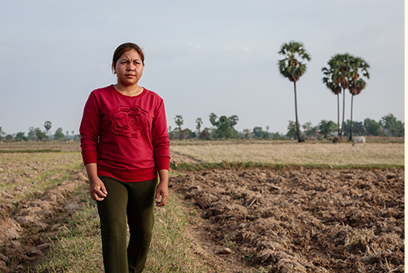
Phany pictured in one of her gardens in Cambodia. Photo credit: Richard Wainwright/Caritas Australia.
More than 216 million people could become internally displaced by 2050 unless the world acts now, according to the World Bank’s latest Groundswell report.
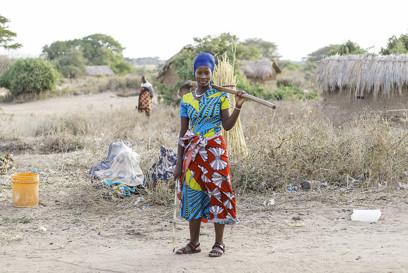
Oliva collecting grain in Tanzania. Photo credit: ??
Kirsty Robertson talks about how Caritas Australia's programs help women to realise their potential and create positive change in their communities.
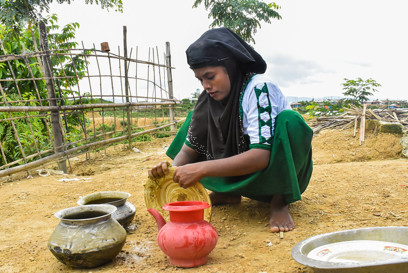
Jamila is a Rohingya refugee, living in Bangladesh. Photo: Inmanuel Chayan Biswas
On World Day of Migrants and Refugees on 26 September, we were called on to remember those displaced by conflict and persecution around the world - and to consider how we can offer practical support to our neighbours around the world.
What can we help you with?
Speak with us
Call our Supporter Services team for assistance. Our lines are open Mon-Fri 9am-5pm AEST.
1800 024 413Contact Caritas Australia
Send us an enquiry and we’ll be in touch. We’d love to hear from you!
Contact UsSee our FAQs
Visit our FAQ page to learn more about the work of Caritas Australia and find answers to our most frequently asked questions.
FAQsDonate now to provide support where it's most needed today
Donate Now











